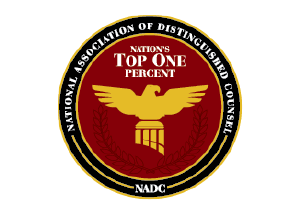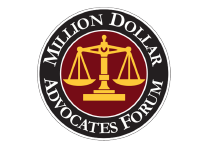Train travel is an efficient mode of transportation, but accidents can happen. When a train accident occurs, it can lead to serious injuries or even tragic loss of life. Understanding your rights and legal recourse is crucial during these challenging times. Fielding Law is your committed legal partner for train accident cases in California and Arizona. We offer unwavering support and guidance, backed by our expertise and determination. In this comprehensive guide, we will explore the intricacies of train accident cases, including how liability is determined and the crucial steps to take following such an incident. Fielding Law is here to help you through the legal complexities, allowing you to focus on recovery and justice.
Why Choose Fielding Law?
Proven Track Record:Fielding Law’s team of personal injury attorneys boasts a remarkable record of success in handling train accident cases, consistently securing substantial compensation for our clients.
Extensive Experience: With a wealth of experience in personal injury law, we are well-equipped to navigate the complexities of train accident cases, including intricate laws and regulations.
Focused Expertise: Train accident cases require specialized expertise, and Fielding Law dedicates our experience to comprehending the nuances of these cases fully.
Comprehensive Investigations: We have the resources and know-how to conduct thorough investigations, gather evidence, interview witnesses, and consult experts to build a compelling case on your behalf.
Skilled Negotiation: Dealing with insurance companies can be daunting, but our team excels in negotiation, ensuring that your rights are advocated for and you receive fair compensation.
Tailored Strategies: Fielding Law customizes legal strategies to your specific situation, understanding that no two train accidents are the same. Our approach maximizes your chances of a successful outcome.
Peace of Mind: When you engage our services, you gain a dedicated advocate who can handle the legal complexities while you focus on your recovery and well-being.
Types of Train Accidents
Train accidents encompass a spectrum of events, each carrying its own set of challenges and implications. From derailments and collisions to pedestrian accidents and mechanical failures, the array of incidents underscores the importance of understanding their nuances. Delving into the diverse categories of train accidents unveils insights into causes, consequences, and crucial legal steps.
- Derailments: Trains can derail due to various factors such as track defects, equipment failure, or operator error. Derailments can lead to severe injuries and extensive property damage.
- Collisions: Train collisions can occur between two trains or involve other vehicles at railroad crossings. These accidents often result in catastrophic consequences, causing injuries and fatalities.
- Pedestrian Accidents: Individuals on or near train tracks may be at risk of accidents. Train-pedestrian accidents can happen at crossings or due to trespassing, resulting in serious injuries or death.
- Mechanical Failures: Train accidents can result from mechanical failures such as brake malfunctions or engine issues. These failures can lead to loss of control and accidents.
What to Do After a Train Accident
- Seek Immediate Medical Attention: Your health is a top priority. Even if your injuries seem minor, consult a healthcare professional for a thorough evaluation.
- Report the Accident: Notify the appropriate authorities, such as the police or railway company, to ensure an official accident report is generated.
- Preserve Evidence: Retain any personal items, clothing, or equipment that may serve as potential evidence. Document the scene with photographs if possible.
- Secure Witness Information: If there were witnesses to the accident, collect their contact information. Witness statements can be valuable for your case.
- Avoid Communication with Insurers: Refrain from discussing the incident with insurance companies until you have consulted with an attorney. Insurance adjusters may use your statements against you.
- Consult an Attorney: For a free, confidential, and no-obligation legal consultation, contact Fielding Law at 833.88.SHARK. Consulting with experienced attorneys is vital before engaging with insurance companies or making formal statements.
Why You Need a Personal Injury Attorney
- Legal Expertise: Personal injury law is intricate and multifaceted, and experienced attorneys can navigate complex legal processes, rules, and regulations on your behalf.
- Case Evaluation: Attorneys can assess the strength of your case and provide an honest evaluation of its potential outcomes, helping you set realistic expectations and make informed decisions.
- Investigation: Lawyers have the resources and expertise to conduct thorough investigations, gather evidence, interview witnesses, and consult experts to build a compelling case on your behalf.
- Negotiation Skills: Dealing with insurance companies can be daunting, but attorneys are skilled negotiators who can advocate for your rights and ensure that you receive fair compensation.
- Legal Strategy: Attorneys tailor legal strategies to your specific circumstances, understanding that no two accidents are the same. This personalized approach maximizes your chances of success.
- Peace of Mind: When you hire an attorney, you gain a dedicated advocate who can handle the legal complexities while you focus on your recovery and well-being.
At Fielding Law, we understand the profound impact that train accidents can have on victims and their families. Our dedicated team is committed to helping you navigate the legal complexities surrounding train accident cases, allowing you to focus on healing and finding justice. If you have been involved in a train accident and are seeking the compensation you deserve, do not hesitate to contact Fielding Law at 833.88.SHARK for a complimentary 24/7 legal consultation.
Awards & Memberships
Fielding Law takes pride in being an award-winning personal injury law firm, celebrated for our steadfast commitment to clients and empathetic approach to their legal needs.













